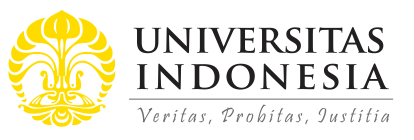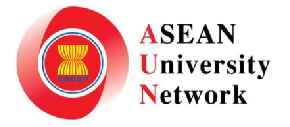
Abstract
Positive language is a crucial communication tool, both within the family environment and in external circumstances. Previous research endeavors have evidenced that the inculcation of positive language by parents is effective in building positive character in their children. Thus, language is not merely a communication tool; it is also a means of personality development. However, this application cannot be realized if parents are unaware. Therefore, the community service activity proposed in this paper aims to broaden and strengthen mindful parenting, and to enhance the discernment of positive language in parents to help them build positive character in their children. To this end, a community-based research process was applied through activities held in a community center to mentor and assist 30 young Muslim couples whom were married for a period of 5 to 20 years. An expert psychologist was engaged to help the participating couples comprehend two perspectives of mindful parenting: language education and psychology. A mini handbook for the application of positive language was distributed to each participating couple as guidance to enable them to continuously employ mindful parenting with their children. This community service activity expanded and reinforced the commitment of all participants to work together to inculcate their children with positive personalities. Parents must be mindful of every single word they say and everything they do if they desire to build a better future generation. The more parents apply positive language in mindful parenting, the more children will be assimilated with constructive personalities.
References
Agustina, R., Lupita Sari, O., Anisfatus Sholihah, L., Rizqi, N., Octavia, L., Laras Pramesthi, I., … Chandra Dewi Kardha, P. (2018). Development of Innovative Picture Storybooks to Empower Parents and Teachers for Early Childhood Education in Nutrition and Social-Behavior in Jakarta. ASEAN Journal of Community Engagement, 2(2), 298-315. https://doi.org/10.7454/ajce.v2i2.128
Baker, C. (2013). Fathers' and Mothers' Home Litearcy Involvement and Children's Cognitive and Social Emotional Development: Implications for Family Literacy Programs. Applied Developmental Science, 17(4), 184-197. https://doi.org/10.1080/10888691.2013.836034
Ball, J. (2010). Indigenous fathers’ involvement in reconstituting “circles of care.” American Journal of Community Psychology, 45(1-2), 124-138. https://doi.org/10.1007/s10464-009-9293-1
Benharoon, S. Y. (2013). Building a Culture of Peace in Muslim Community in Southern Thailand through Family Communication. Procedia - Social and Behavioral Sciences, 91(2013), 522-531. https://doi.org/10.1016/j.sbspro.2013.08.450
Brock-Utne, B. (2017). Language and identity: Reflections by a cultural commuter. In B. Maryam (Ed.), Language and Globalization: An Autoethnographic Approach (pp. 132-143). Routledge, Taylor and Francis Group. https://doi.org/10.4324/9781315394626
Campbell, K., Thoburn, J., & Leonard, H. (2017). The mediating effects of stress on the relationship between mindfulness and parental responsiveness. Couple and Family Psychology: Research and Practice, 6(1), 48-59. https://doi.org/10.1037/CFP0000075
Coatsworth, J. D., Duncan, L. G., Greenberg, M. T., & Nix, R. L. (2010). Changing parent’s mindfulness, child management skills and relationship quality with their youth: Results from a randomized pilot intervention trial. Journal of Child and Family Studies, 19(2), 203-217. https://doi.org/10.1007/s10826-009-9304-8
Daniel, G. R., Wang, C., & Berthelsen, D. (2016). Early school-based parent involvement, children’s self-regulated learning and academic achievement: An Australian longitudinal study. Early Childhood Research Quarterly, 36(2016), 168-177. https://doi.org/10.1016/j.ecresq.2015.12.016
Gadsden, V., Ford, M., & Breiner, H. (2016). Parenting matters: Supporting parents of children ages 0-8. Washington DC, USA: The National Academies Press. https://www.ncbi.nlm.nih.gov/pubmed/27997088
García-Carrión, R., & Villardón-Gallego, L. (2016). Dialogue and Interaction in Early Childhood Education: A Systematic Review. Multidisciplinary Journal of Educational Research, 6(1), 51-76. https://doi.org/10.17583/remie.2016.1919
Gini, G., Pozzoli, T., & Hauser, M. (2011). Bullies have enhanced moral competence to judge relative to victims, but lack moral compassion. Personality and Individual Differences, 50(5), 603-608. https://doi.org/10.1016/j.paid.2010.12.002
Gouveia, M. J., Carona, C., Canavarro, M. C., & Moreira, H. (2016). Self-Compassion and Dispositional Mindfulness Are Associated with Parenting Styles and Parenting Stress: the Mediating Role of Mindful Parenting. Mindfulness, 7(3), 700-712. https://doi.org/10.1007/s12671-016-0507-y
Hale, L., & Guan, S. (2015). Screen time and sleep among school-aged children and adolescents: A systematic literature review. Sleep Medicine Reviews, 21(2015), 50-58. https://doi.org/10.1016/j.smrv.2014.07.007
Heyman, G. D., Luu, D. H., & Lee, K. (2009). Parenting by lying. Journal of Moral Education, 38(3), 353-369. https://doi.org/10.1080/03057240903101630
IOM (Institute of Medicine). (2013). Educating the Student Body: Taking Physical Activity and Physical Education to School. The National Academies Press. https://doi.org/10.17226/18314
Kim, S., & Hill, N. (2015). Including fathers in the picture: A meta-analysis of parental involvement and students' academic achievement. Journal of Educational Psychology, 107(4), 919-934. https://doi.org/10.1037/edu0000023
Kopala-Sibley, D. C., Jelinek, C., Kessel, E. M., Frost, A., Allmann, A. E. S., & Klein, D. N. (2017). Parental depressive history, parenting styles, and child psychopathology over 6 years: The contribution of each parent’s depressive history to the other’s parenting styles. Development and Psychopathology, 29(4), 1469-1482. https://doi.org/10.1017/S0954579417000396
Lang, D., Wiek, A., Bergmann, M., Stauffacher, M., Martens, P., Moll, P., Swilling, M., & Thomas, C. J. (2012). Transdisciplinary research sustainability science: Practice, principles, and challenges. Sustainability Science, 7(1), 25-43. https://doi.org/10.1007/s11625-011-0149-x
Lansford, J. E., Sharma, C., Malone, P. S., Woodlief, D., Dodge, K. A., Oburu, P., … Di Giunta, L. (2014). Corporal Punishment, Maternal Warmth, and Child Adjustment: A Longitudinal Study in Eight Countries. Journal of Clinical Child and Adolescent Psychology, 43(4), 670-685. https://doi.org/10.1080/15374416.2014.893518
Larkins, C. (2014). Enacting children's citizenship: Developing understandings of how children enact themselves as citizens through actions and Acts of citizenship. Childhood, 21(1), 7-21. https://doi.org/10.1177/090756821341815
Lee, J. S. (2009). The Korean Language in America: The Role of Cultural Identity in Heritage Language Learning. Language, Culture and Curriculum, 15(2), 117-133. https://doi.org/10.1080/07908310208666638
Lexmond, J., & Reeves, R. (2009). “Parents are the principal architects of a fairer society...”: Building Character. Notes. London, UK. DEMOS.
Luebbe, A. M., & Bell, D. J. (2014). Positive and negative family emotional climate differentially predict youth anxiety and depression via distinct affective pathways. Journal of Abnormal Child Psychology, 42(6), 897-911. https://doi.org/10.1007/s10802-013-9838-5
Nix, R. L., Bierman, K. L., Domitrovich, C. E., & Gill, S. (2013). Promoting Children’s Social-Emotional Skills in Preschool Can Enhance Academic and Behavioral Functioning in Kindergarten: Findings From Head Start REDI. Early Education and Development, 24(7), 1000-1019. https://doi.org/10.1080/10409289.2013.825565
Ochocka, J., & Janzen, R. (2015). Breathing life into theory: Illustrations of community-based research – Hallmarks, functions and phases. Gateways: International Journal of Community Research and Engagement, 7(2014), 18-33. https://doi.org/10.5130/ijcre.v7i1.3486
Parish-Morris, J., Mahajan, N., Hirsh-Pasek, K., Golinkoff, R. M., & Collins, M. F. (2013). Once upon a time: Parent-child dialogue and storybook reading in the electronic era. Mind, Brain, and Education, 7(3), 200-211. https://doi.org/10.1111/mbe.12028
Parker, A. E., Mathis, E. T., & Kupersmidt, J. B. (2013). How Is This Child Feeling? Preschool-Aged Children’s Ability to Recognize Emotion in Faces and Body Poses. Early Education and Development, 24(2), 188-211. https://doi.org/10.1080/10409289.2012.657536
Radl, J., Salazar, L., & Cebolla-Boado, H. (2017). Does Living in a Fatherless Household Compromise Educational Success? A Comparative Study of Cognitive and Non-cognitive Skills. European Journal of Population, 33(2), 217-242. https://doi.org/10.1007/s10680-017-9414-8
Rahmatullah, A. S. (2017). Pendidikan Keluarga Seimbang yang Melekat Sebagai Basis yang Mencerahkan Anak di Era Digital. Cendekia: Journal of Education and Society, 15(2), 211-224. https://doi.org/10.21154/cendekia.v15i2.1144
Rosyada, A., & Ramadhianti, A. (2019). Implementasi Bahan Positif dan Screen Time Management dalam Membangun Karakter Terbaik Anak. PkM Pengabdian Kepada Masyarakat, 2(2), 87–95. http://dx.doi.org/10.30998/jurnalpkm.v2i02.3059
Rosyada, A., & Retnomurti, A. B. (2017). The Use of Positive Language on Children Education to Build Children’s Positive Behaviour. Scope : Journal of English Language Teaching, 1(01), 1. https://doi.org/10.30998/scope.v1i01.868
Schoon, I., Parsons, S., Rush, R., & Law, J. (2010). Children’s Language Ability and Psychosocial Development: A 29-Year Follow-up Study. Pediatrics, 126(1), 73-80. https://doi.org/10.1542/peds.2009-3282
Seals, C. A. (2018). Positive and negative identity practices in heritage language education. International Journal of Multilingualism, 15(4), 329-348. https://doi.org/10.1080/14790718.2017.1306065
Stack, D. M., Serbin, L. A., Enns, L. N., Ruttle, P. L., & Barrieau, L. (2010). Parental effects on children’s emotional development over time and across generations. Infants and Young Children, 5(5), 1-12. https://doi.org/10.1097/IYC.0b013e3181c97606
Zhang, D., & Slaughter-Defoe, D. T. (2009). Language attitudes and heritage language maintenance among chinese immigrant families in the usa. Language, Culture and Curriculum, 22(2), 77-93. https://doi.org/10.1080/07908310902935940
Recommended Citation
Rosyada, Amrina and Ramadhianti, Agustina
(2019).
Applying positive language in mindful parenting: A means of building positive character in children.
ASEAN Journal of Community Engagement, 3(2).
Available at: https://doi.org/10.7454/ajce.v3i2.1058







